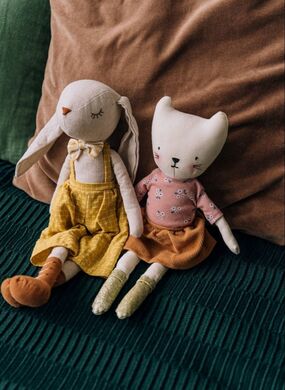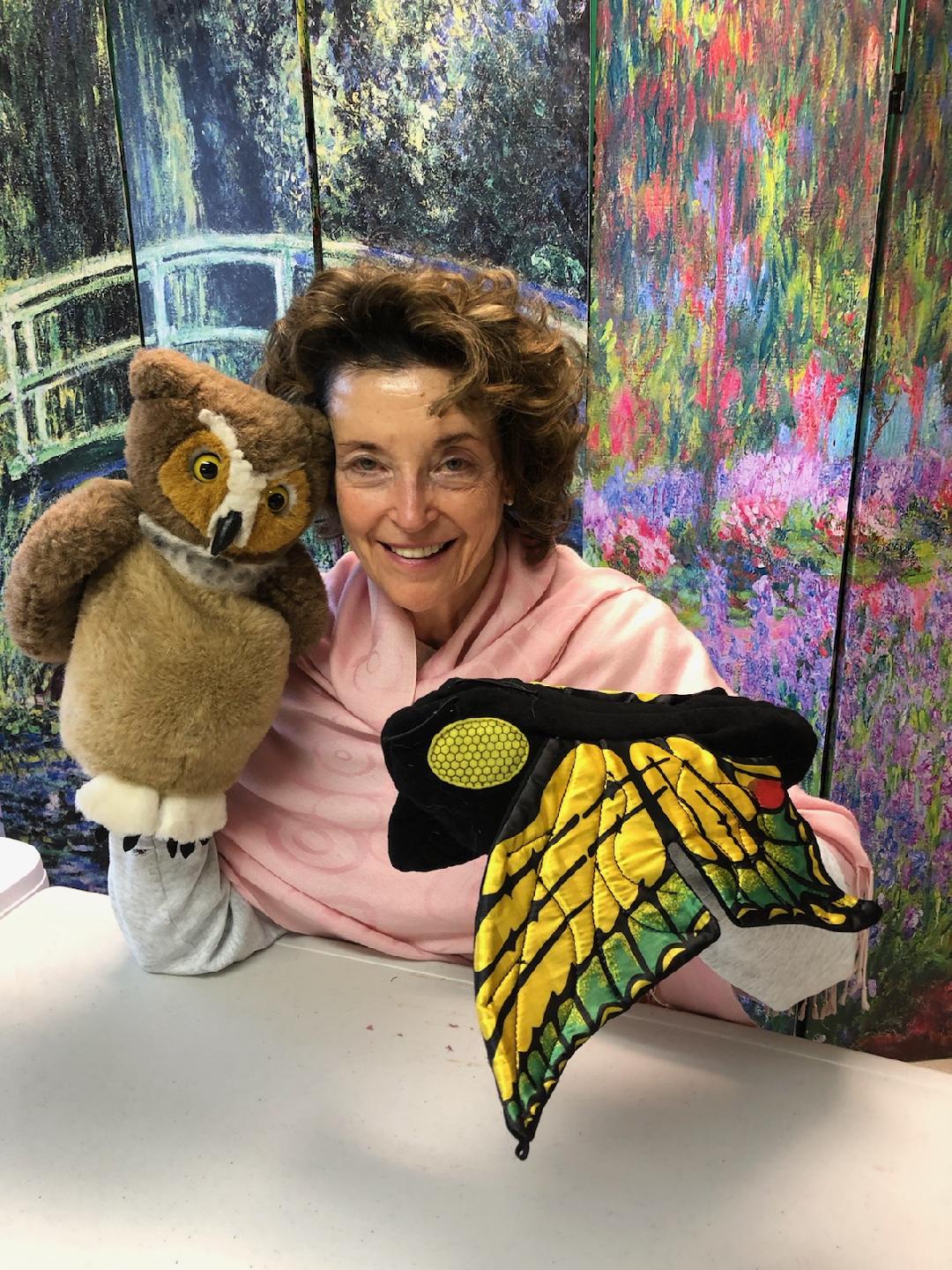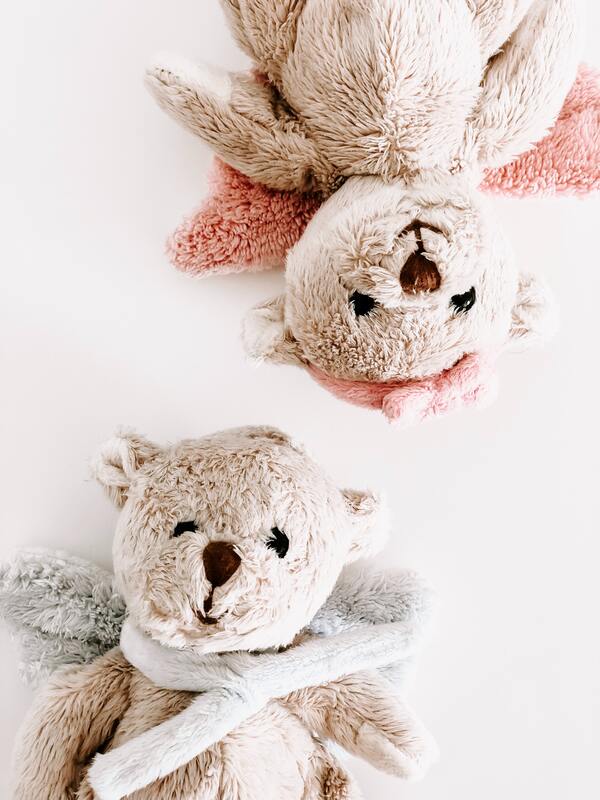"Not Just Child’s Play: Using Furry Auxiliaries to Enliven Your Therapy Sessions" on March 19. By Karen Carnabucci, LCSW, TEP Let’s talk about puppets. And play. And why play is so essential for discovery, growth, healing and change no matter who you are or how old you are. Play is often considered suitable for little people – children – until they are able to grow older and “talk” about their problems and transition into the kind of therapy that “big people” do. Which is why I want to tell you about puppets, stuffed animals and dolls and their value for people of all ages. The fact is that children, teens and adults hugely benefit from play as a genuine therapeutic intervention that not only support learning to emotionally regulate but also to build spontaneity and creativity that is so valued in Dr. J.L. Moreno’s method of psychodrama. My good friend and colleague Linda Ciotola, M.Ed., TEP, and I have talked a lot about this. We co-wrote the book Healing Eating Disorders with Psychodrama and Other Action Methods: Beyond the Silence and the Fury, where we briefly the use of props in education and psychotherapy, and we mention play in our conversations practically all the time. One of the best times I've had in recent years is sitting in Linda's play room in her home, talking with puppets. Yes, talking with puppets. Linda has dubbed these furry friends and "furry auxiliaries" -- the psychodrama term "auxiliary" refers to a kind of "assistant" in the dramatic process -- as helpers that bring play and laughter into the therapeutic or educational session. Ironically, these furry assistants can be amazingly helpful in working through more serious themes, including themes of severe trauma, pain and loss. Part of the magic comes with concretization, a psychodramatic term for using props and other supplies to make “concrete” a concept or topic that is typically abstract. In the world of creative arts therapies and psychodrama, we often use scarves, chairs, pillows, stones and an occasional stuffed animal and other items for concretization. Linda, however, has taken this prop thing to new level. She has a large and amazing collection of beautiful big hand puppets from Folkmanis, and each one become real to the people is working with – and people become easily engaged to tell the puppet or the animal their problems and feelings. She also uses the puppets to demonstrate the "roles" of the brain, as she does in the YouTube video marked "Concretizing Warm Up 2" below. You can find a these videos with Linda demonstrating her way of working:
Another psychodramatic view
Adam Blatner, one of the foremost interpreters of Moreno’s ideas, maintains that improvisation is a rewarding and important form of playfulness that is a potential source of pleasurable recreation-aesthetically, personally and socially. Adults often need to be re-taught how to play – unless they became stuck in the perfect mode early on to please parents, family, religion and teachers and didn’t learn how to play at all. In his book The Art Of Play which he wrote with his wife Allee Blatner, Adam reminds us that the skills of play are often the “very opposite” of the habits of thinking and acting that we have developed in the course of most schooling. “Most of us have become habituated to focusing attention on a search for a correct answer. Instead of being objective and rational, you may often need to remind yourself to allow subjective and emotional ideas to come to mind," he writes. "In addition, effort has no value and needs to be set aside in order for you to rediscover your capacity to enter a natural flow of images and interactions. Cultivating imaginative playfulness benefits from and requires a free-floating attention that is sensitive to your intuition and aesthetically exciting ideas.” Play and polyvagal theory Stephen Porges, the author of The Polyvagal Theory, has looked deeply into the function of the vagus nerve in emotion regulation, social connection and the fear response. He considers play a “neural” exercise that cues our nervous system that alternatives between warning us of danger and confirming when we are safe. As an example, we can think of the simple game of peek-a-boo, that mothers and fathers play with their baby. By temporarily hiding her face for a moment – removing the cues of safety generated by her fascial expressions and prosodic voice -- which we might define as a warmly rhythmic voice that rises and falls in tone – the mother temporarily creates a state of uncertainty in baby. This uncertainty is followed by the mother startling the infant and showing her face again and saying, “peek-a-boo!” which calms the baby. Through experience, baby learns to “neurally navigate” through a sequence of states, from calm, to vigilant, to startle, and back to calm. Repeating this game provides the opportunity for baby’s social engagement system to regulate and this skill later to adapt to the classroom and to other social settings where emotions of all kinds may be activated. Porges, in fact, maintains that the ability to have the neural resources to regulate biobehavioral state is as important as intelligence and motivation in predicting classroom performance. More on play for children Of course, play still relates to children very much, and that's OK. An article in the current issue of the Psychotherapy Networker maintains that families can learn how to apply play at home to bring about profound systemic changes. Because play allows children to relate through something other than the confusing terrain of adult language, and instead engage in a mode of being that they’ve already mastered, family therapists could be more effective if they added it to their repertoires. The author of the article Dafna Lender, says: "The quickest and most powerful way to get to transformative moments with children is through play—meaning interactive, face-to-face, reciprocal, cooperative interactions that rely on movement, rhythm, touch, a prosodic voice, and eye contact. I call this primary play because it appeals to the developmentally younger levels of the brain: the brainstem, the diencephalon, and the limbic brain. It doesn’t engage the neocortex, the part of the brain that develops after the second year of life and uses logic, planning, verbal communication, and imagination. Instead, it uses tools that say to a child’s limbic brain, “You’re safe and worthy, and I enjoy connecting with you.” About Karen Karen Carnabucci, LCSW, TEP, is the founder of the Lancaster School of Psychodrama and Experiential Psychotherapies in Lancaster, Pa., which teaches transformational learning in a variety of experiential methods and practices, including psychodrama, sociometry, Family and Systemic Constellations, sand tray, group skills and more. Subscribe to her e-letter for professionals and get first notice of training events, Early Bird discounts, helpful links and other inspiring and supportive info. You may subscribe here.
0 Comments
Your comment will be posted after it is approved.
Leave a Reply. |
AuthorKaren Carnabucci, LCSW, TEP, is an author, trainer and psychotherapist who promotes, practices and teaches experiential methods including psychodrama, Family and Systemic Constellations, sand tray, mindfulness and Tarot imagery. Archives
December 2023
Categories
All
|



 RSS Feed
RSS Feed